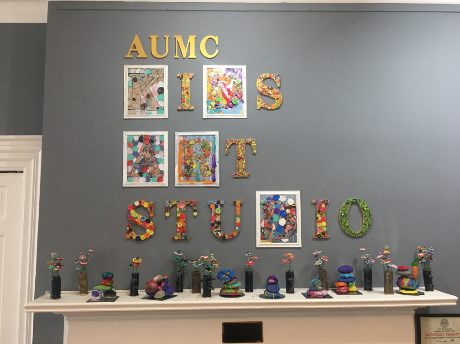From the Genesee County Health Department:
April is Sexually Transmitted Disease Awareness Month, which is a great time to GYT -- Get Yourself Tested!
The Centers for Disease Control and Prevention (CDC) estimates that nearly 20 million new STDs occur every year in this country. In fact, one in two sexually active young people in the United States will contract an STD by the time they’re 25 — and most won’t know it.
This is why it is important to GYT at least once a year, and more often if you or your partner(s) participate in risky behaviors.
Sexually transmitted diseases (STDs) are infections transmitted from one person to another through sexual activity. These include chlamydia, gonorrhea, genital herpes, human papillomavirus (HPV), syphilis, and HIV. Many people who have an STD don’t know it because they often don’t have signs or symptoms. Even without symptoms, STDs can still be harmful and passed on during sex.
If you are sexually active, getting tested for STDs is one of the most important things you can do to protect your health. Make sure you have an open and honest conversation about your sexual history and STD testing with your doctor and ask whether you should be tested for STDs.
It is important for sexually active men and women to get tested at least once a year. You should get tested every three to six months if you do not use protection (latex or synthetic male/female condoms, dental dams, and finger cots) having multiple sexual partners and/or sharing needles/drug paraphernalia.
Testing will not only protect your health now, but will protect the future of your health as well.
Brenden Bedard, deputy Public Health director / director of Community Health Services of Genesee and Orleans counties, says there are serious health outcomes that STDs may have if left untreated.
“Some of the consequences of not receiving timely testing and treatment can include infertility (cannot become pregnant), loss of pregnancy, pelvic inflammatory disease (inflammation of the female reproductive organs), epididymitis (inflammation of the epididymis tube in the testicle), weakened immune system, damage to organs, and various cancers,” Bedard said.
The good news, he explained, is that many STDs can be treated or even cured.
“Some STDs, such as gonorrhea,chlamydia, and syphilis, can be cured by taking antibiotics prescribed by a healthcare provider," Bedard said. "Although some STDs cannot be cured, such as genital herpes, genital warts, and HIV/AIDS, taking medication can treat andmanage the symptoms of these diseases.”
According to the CDCs latest report, in 2017 there were 2 million cases of chlamydia, gonorrhea, and syphilis diagnosed in the United States. In 2018, STD rates in Genesee County confirmed 159 cases of chlamydia, 41 cases of gonorrhea, five cases of syphilis, and six cases of hepatitis B.
There are several ways to prevent STDs. The most reliable way is to not have sex (vaginal, oral or anal), but there are many other tried-and-true options:
- Get Vaccinated: Vaccines are safe, effective, and recommended ways to prevent hepatitis B and human papillomavirus (HPV). HPV vaccines for males and females can protect against certain types of HPV that can lead to cancer or genital warts. The HPV vaccine is given in a series of 3 shots for people ages 15-45. For people ages 9-14, only two doses (shots) are needed. You should also get vaccinated for hepatitis B if you were not vaccinated when you were younger.







